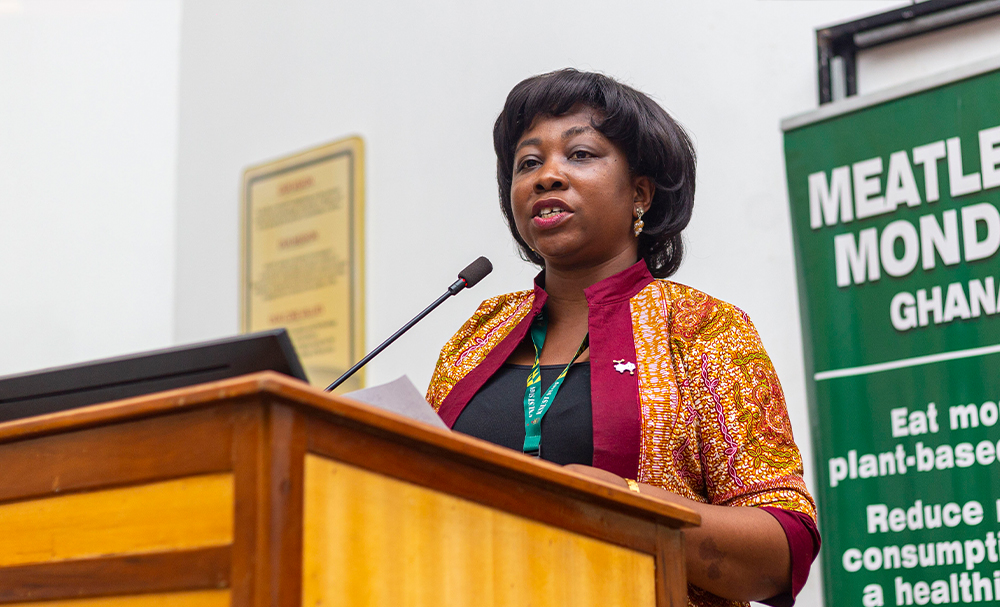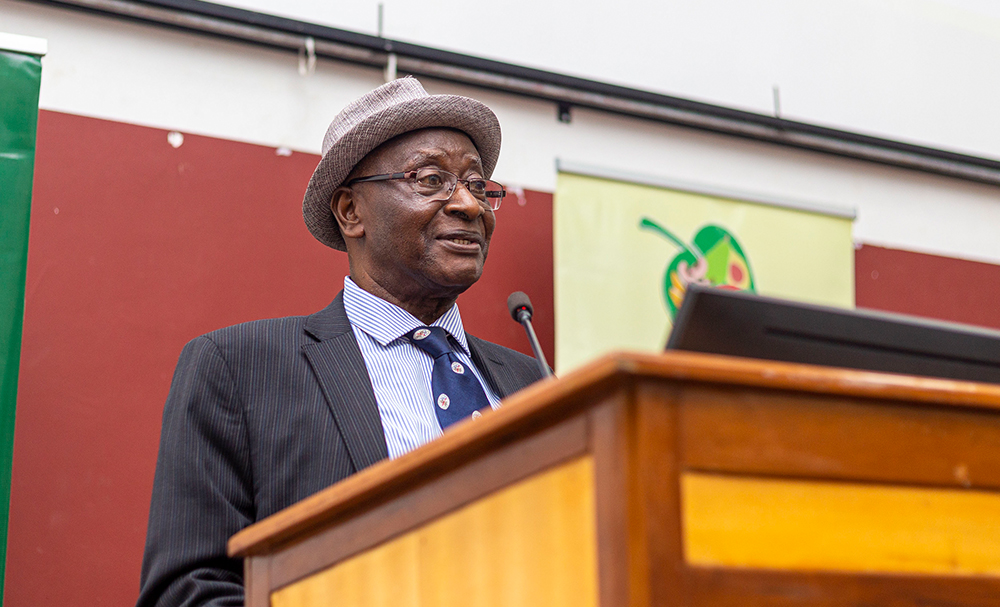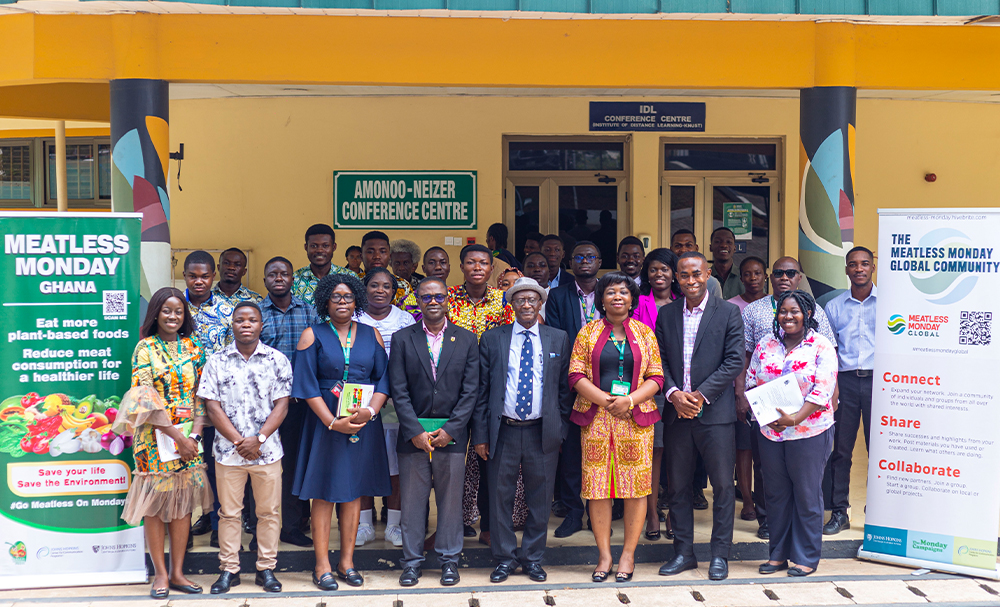The Kwame Nkrumah University of Science and Technology (KNUST) in Kumasi has partnered with the Center for Communication Programs and the Center for a Livable Future at Johns Hopkins University to launch the Meatless Monday initiative on its campus.
The project aims to encourage the university community to adopt plant-based meals at least once a week, promoting healthier lifestyles, reducing environmental impact, and fostering community well-being.

During the inauguration, Prof. Marian Asantewah Nkansah, Director of Student Affairs at KNUST, emphasized the program's goal of creating a supportive environment that motivates students and staff to make positive dietary and lifestyle changes.
"The Meatless Monday program is not just about food; it's about building a community that prioritizes health and sustainability," she stated.

Mr. Emmanuel Fiagbey, Executive Director of the Center for Communication and Meatless Monday Ghana, highlighted the broader benefits of the initiative.
"Meatless Monday is a public health campaign designed to reduce the prevalence of preventable diseases by encouraging healthy eating every Monday," he explained.
He added that Monday serves as an ideal day to reset after weekend indulgences, making it a practical starting point for healthier habits.
The initiative also addresses critical environmental and ethical concerns.
Mr. Fiagbey outlined the benefits, including reducing non-communicable diseases, mitigating environmental issues such as biodiversity loss, land degradation, greenhouse gas emissions, water scarcity, and pollution, as well as promoting animal welfare by reducing exploitation and cruelty.
To ensure the successful implementation of the project, a coordinating team was established at KNUST.
The team includes Prof. Akoto Yaw Omari-Susu as Chairman of the Meatless Monday Coordinating Committee, Rabbi Darko, a psychologist from KCC, as Coordinator/Secretary, Simon Oppong Kagya from the SRC as a representative, and Jessica Miller-GRASAG as another representative.
Prof. Omari-Susu, on behalf of the coordinating team, received promotional materials such as flyers, stickers, leaflets, guidebooks, and USB drives to support awareness campaigns.
These materials will be used to display advertisements on LED screens across the KNUST campus, ensuring widespread visibility and engagement with the initiative.

















